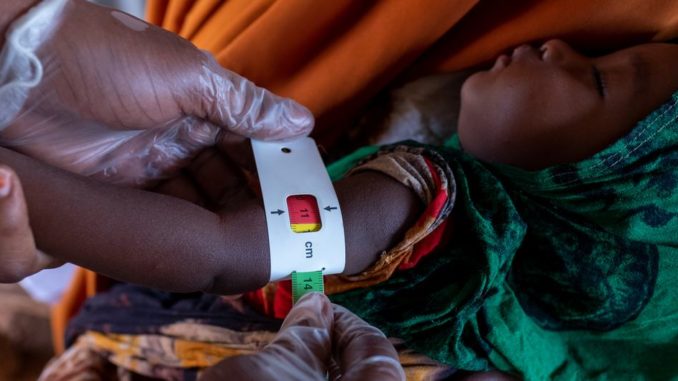
The threat of famine is ‘very real’ in Somalia and South Sudan and urgent action is needed now to avoid a catastrophe, UN humanitarians warned on Tuesday.
The alert from the World Food Programme (WFP) and Food and Agriculture Organization (FAO) followed the latest food security assessments which showed that six million people in Somalia will face acute food insecurity in the coming months, unless the rains come.
That is almost double the number at the start of the year, said Lara Fossi, WFP Deputy Country Director in Somalia, who noted that Somalia last endured famine in 2011 and only narrowly avoided it in 2016-2017, thanks to prompt humanitarian intervention.
“This is a heads-up that this assessment is showing that we are already identifying six areas in Somalia that are at risk of famine, that are at risk of going down that route of 2011 if we don’t act now,” she said.
The situation is equally devastating in South Sudan, where “two-thirds of the country will likely face hunger between May and July of this year,” said Meshack Malo, FAO Representative in South Sudan. “In terms of actual numbers, that means this is about 7.74 million people; this is the highest number ever recorded.”
Famine was declared in two counties of South Sudan in 2017, although prompt international assistance prevented the situation from deteriorating further.
Citing the latest IPC data on food insecurity across South Sudan, Mr. Malo noted that 1.34 million children are “malnourished severely. And over 600,000 pregnant and lactating women are malnourished this year”.
The WFP officer warned that the agency is now “taking from the hungry to feed the starving” as it struggles to scale up its emergency response to 2.5 million people in Somalia – “a next to impossible feat, considering our relief funding gap of $149 million”.
She added: “The latest data shows how rapidly things are getting worse, with six million people now facing acute food insecurity in the coming months. This is almost double the number at the start of the year.
“It’s almost 40 per cent of the population and there is a real risk of famine in some areas if the current rainy season fails.”
